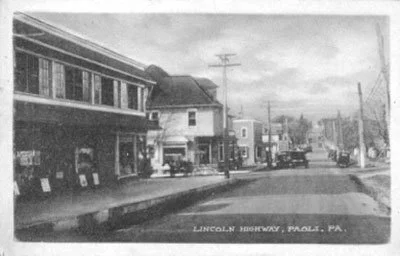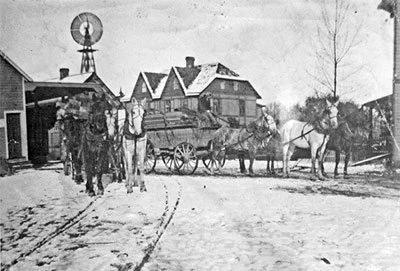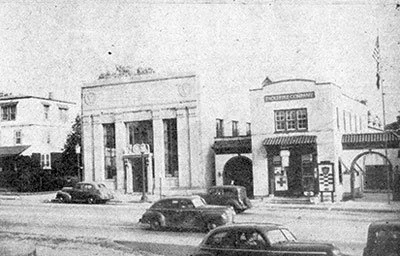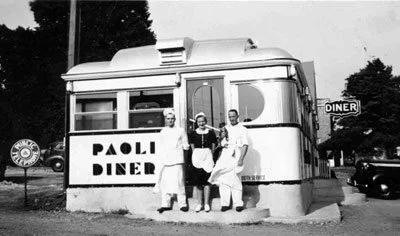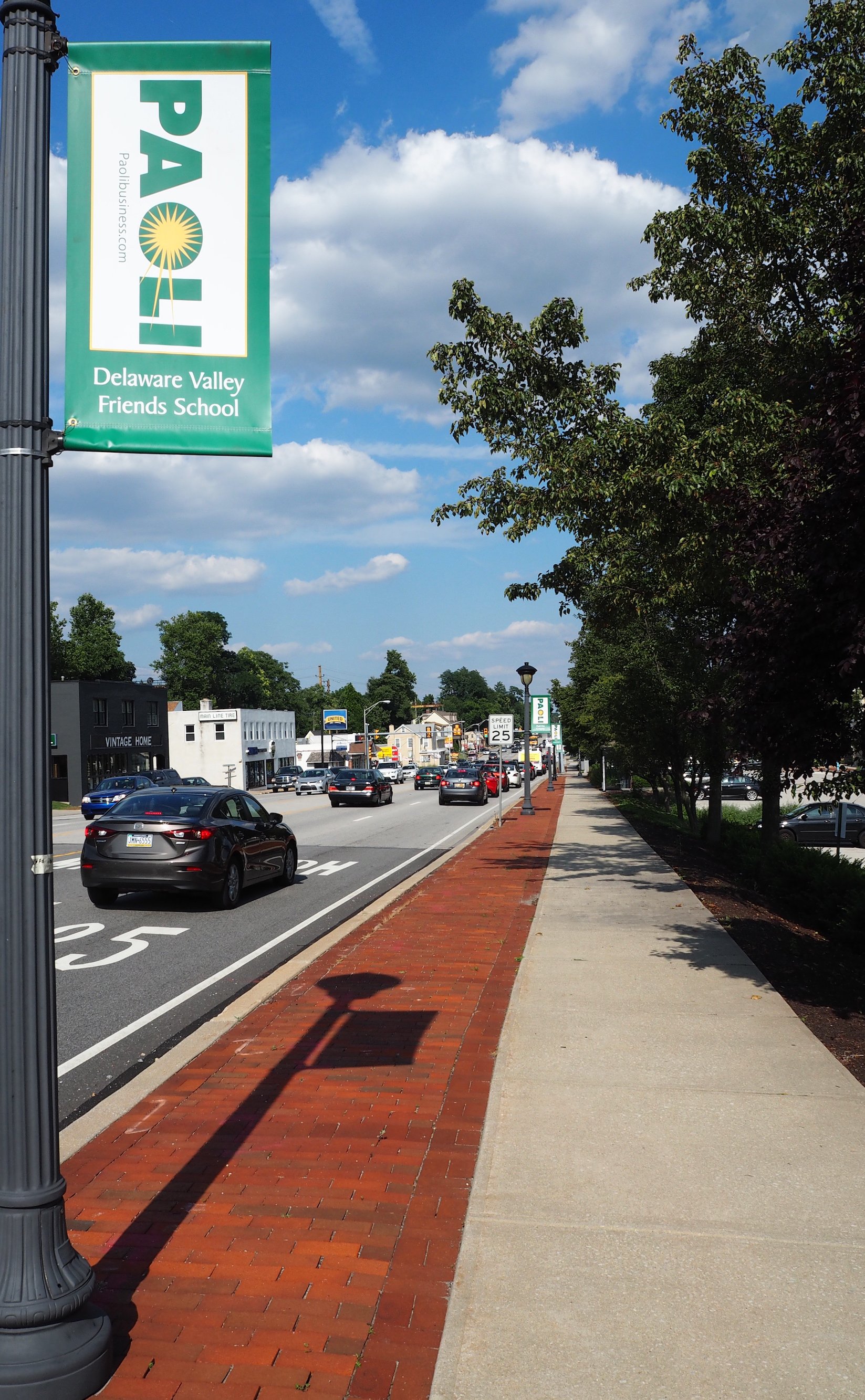
Paoli boasts a small-town feeling enhanced by the sophistication associated with the Main Line of Philadelphia. Located 26 miles west of Philadelphia, it is comprised of three townships: Easttown, Tredyffrin, and Willistown.
Each township sets its own tax rate, administers planning and zoning boards, and has its own police force.
The community has 3 volunteer fire companies, with modern equipment and ambulance service, as well as the county’s regional trauma center and hospital that provide 24-hour emergency care to residents.
Regional rail and bus service plus a much-anticipated transportation center renovation assure riders access to Philadelphia as well as other East coast metropolitan centers of commerce and industry.
Indeed, Paoli prides itself on meeting its residents' every need!
-
With its charming, one-of-a-kind dining options, Paoli satisfies every palate. Feast on steaks, seafood, or delicious international cuisine. Relax après shopping with specialty coffees and just-baked donuts or scones. Grab a quick lunch of fresh-made pizza, hoagies, burgers & fries, or a Philly cheesesteak that’s the real deal. Evenings indulge in unique specialty beers and hearty pub food at our cozy neighborhood bars and grills. Or pick up delicious dinners—ready to eat or pop in the oven.
For breakfast, lunch, and dinner — or snacks in between — Paoli has it all. Best of all, most restaurants in Paoli are family-owned. You'll be hard-pressed to find the same warm and friendly service—or distinctive meals—anywhere else.
-
Paoli’s vibrant retail district lines Rt 30 and side streets with centers and individual stores that meet your every need.
Clothing-wise, the gamut runs from favorite upscale national stores to unique local boutiques offering informal and sports attire to formal and wedding apparel. Poke around and you’ll discover several shops with high-end fashion for a fraction of its original cost.
Stores selling necessities, house & garden goods, and home décor sit side-by-side with charming little independent shops selling unique gifts, elegant jewelry, and shabby chic treasures.
Old and new, sophisticated and down-to-earth, necessary or a special treat, you will find it in on the tree-lined streets of Paoli.
-
The Paoli area boasts an abundance of outstanding professional services to offer its residents. Legal, financial, medical, and other special needs are met by some of the most highly regarded experts on the East coast. You will also find various excellent essential services, from award-winning automotive facilities to knowledgeable and reliable tradesmen.
Many and diverse health/fitness centers, recreational parks, walking/biking trails, churches, and award-winning schools also serve the community. National and international corporations in the area add a vibrancy to the Paoli business climate.
Community Resources
-
-
-
-
Chester County Official Website
Chester County's Brandywine Valley
Chester County Chamber of Business and Industry
Chester County Parks and Trails
Community Matters blog
Great Valley Chamber of Commerce
Paoli-Berwyn-Malvern Lions Club
Main Line Chamber of Commerce
Main Line Neighbors
Main Line School Night
Main Line Blues Festival
Paoli Transportation/Train Station Project
Tredyffrin Business Services
Tredyffrn Easttown Historical Society
Tredyffrin Patch
Valley Forge Park
Wharton Esherick Museum
Historic Waynesborough
CEDA New Business Startup Guide
PA Professional Licensing Services
Paoli's Rich History and Heritage
The Paoli area is very rich in history, being part of three original counties established by William Penn on land that once belonged to the Lenni Lenape tribe of the Algonquin Indians. In 1660, Welsh Quakers purchased 40,000 acres from Penn from the Schuylkill River westward and northward. Welsh names such as Merion, Radnor, Bryn Mawr, and Tredyffrin remain in use, whereas Duffryn Mawr later became Paoli.
An important event of the Revolutionary War occurred locally. In 1777, British General Howe with 18,000 troops sailed up the Chesapeake Bay to begin a march to Philadelphia, the colonial capital. After defeating General Washington at the Battle of Brandywine, the British advanced into the Upper Main Line area.
The "Paoli Massacre" occurred on September 20, 1777. Fifteen hundred American troops and four cannons under local hero General Anthony Wayne were camped in Malvern to keep an eye on and harass the enemy. British Major General Grey was ordered to conduct a surprise night attack on this outpost. Led by a Tory guide, they found the Americans unprepared and easily rousted them. Fifty-three Americans were killed and are buried in Malvern's Paoli Battlefield Memorial Grounds.
The British subsequently moved across the Schuylkill River without opposition and occupied Philadelphia. This was the infamous winter (1777-78) that General Washington spent at Valley Forge.
The first road through the Welsh tract was the Conestoga Road, which followed an Indian trail. West of Malvern, it went northwest to the Conestoga Indian villages near Harrisburg. In 1720, a road was surveyed to run west to Lancaster from the point where the Conestoga Road veered to the north. This became Lancaster Road.
In 1792, a company was formed to make an "artificial road" from Philadelphia to Lancaster. Completed in 1794, it was the first stone-paved road in the United States. To insure the collection of tolls, pikes were placed across the road at intervals and only turned aside when the toll ($.02 for a foot traveler, $.19 for a horse and carriage, and $.25 for each 20 head of stock) was paid.
In 1832, a Main Line of Public Works was commissioned to set up a railroad from Philadelphia through Lancaster and then on to Pittsburgh. This later became the Main Line of the Pennsylvania Railroad. By 1855, Paoli became the official terminal for all Main Line trains, and a turntable and engine house were built at the present Paoli railroad yards.
The village takes its name from General Pasquale Paoli, who was the leader of Corsica from 1755 to 1769 and who was called "The Father of His Country". He stamped out the practice of vendettas, encouraged commerce, and established a school in every village and a university in Corte. In addition, he wrote the first democratic constitution in Europe.
On May 9, 1769, French invaders decisively defeated Paoli and his patriots, and Paoli escaped to London where he was granted political asylum and an annual pension by King George III. He died there in 1807 and was commemorated with a monument erected in Westminster Abbey which can be seen there today.
Paoli's remains were moved to Morosaglia, his birthplace in his native Corsica, in 1887. Paoli enjoyed the respect of his contemporaries for his daring on the battlefield, his wisdom in council, and his heroic acts.
Note: The PBPA maintains an ongoing relationship with the Foundation Pasquale Paoli of Corsica. Its founder and Secretary General, Georges Coanet, came to Paoli in 1992 in search of information on Pasquale Paoli. During his visit, he and his wife Renee met with community leaders, attended a dinner in their honor, and visited local landmarks.
Our Association also maintains a warm relationship with the Corsican community. In 2011, Ed Auble, PBPA president at the time, was invited to visit Corsica, where he met with the University of Corsica officials in what once was General Paoli's office and visited the General's birthplace/resting place in Morasaglia. In years circa 2011, our Paoli was visited by Catherine Sorba (Paris) and Francis Acqui (Ajaccio), both Corsican.Paoli's name was synonymous with freedom from tyranny, and so, circa 1769 the Inn at Duffryn Mawr was named after General Paoli. The Inn was located on Old Lancaster Pike at about the 18th milestone from Philadelphia (near where the Post Office is today) and was operated by the Evans family. It was a popular stopover for stagecoaches along the Pike and a meeting place for soldiers during the Revolutionary War.
*images are courtesy of the Tredyffrin Easttown Historical Society.
Paoli's name was synonymous with freedom from tyranny, and so, circa 1769 the Inn at Duffryn Mawr was named after General Paoli. The Inn was located on Old Lancaster Pike at about the 18th milestone from Philadelphia (near where the Post Office is today) and was operated by the Evans family. It was a popular stopover for stagecoaches along the Pike and a meeting place for soldiers during the Revolutionary War.
The first U.S. Post Office in the area was opened here on December 9, 1826. It was a polling place for the four area townships and was the scene of political rallies.
In 1881, the Evans family sold the Inn and 350 acres of land, which included all of Paoli as we know it, to the "Paoli Heights Improvement Company" which started to develop it. On May 30, 1899, the General Paoli Inn was destroyed by fire.



